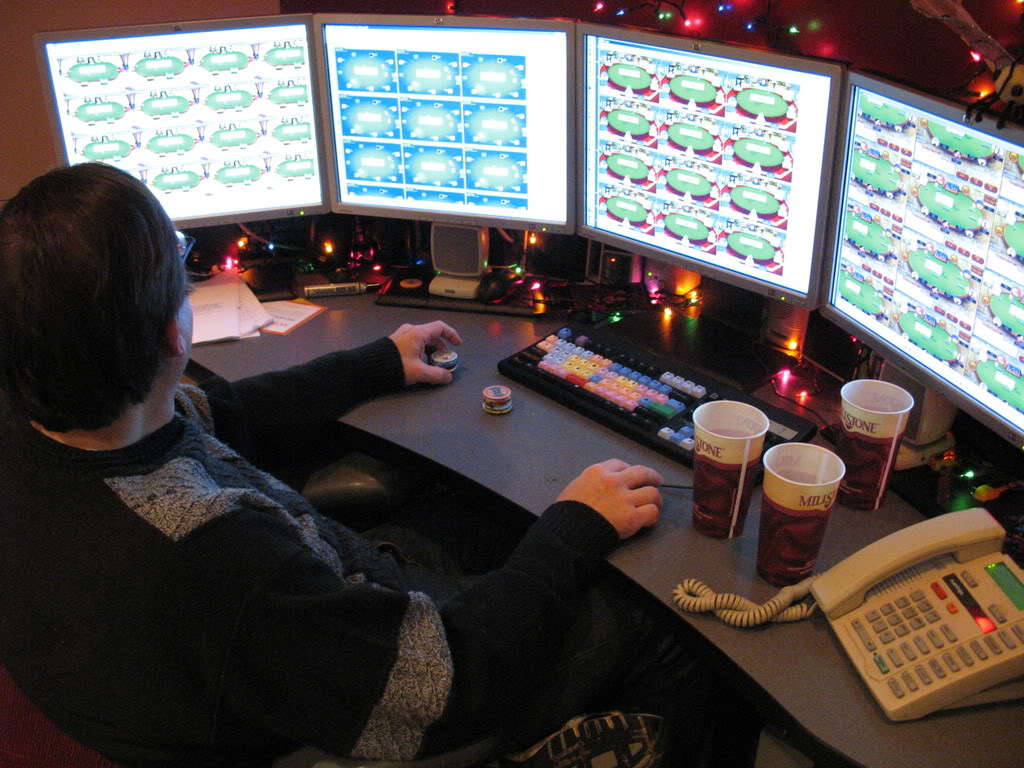Since the first online poker hand was dealt on Planet Poker back in 1998, online poker has grown to be a huge industry worth billions of dollars. In more recent times, poker has again seen a spike in growth, and in March of 2020, we saw the largest prize pool ever. Pokerstars hosted their 14th Anniversary of the Sunday Million which boasted a record-setting $17 million prize pool! With so much money in circulation online, security becomes a concern for websites and players alike.
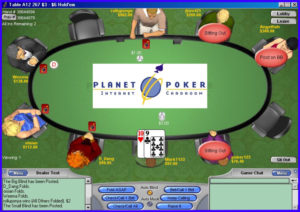
For players, the main object when playing poker is to win and increase their bankroll. This often leads to considerable amounts of money being held online and especially in poker accounts which makes it a lucrative industry for cybercriminals to target. There have been many instances where players have lost money because their opponents could spy on their hole cards or due to other security vulnerabilities.
There are several things you need to do as an online poker player to ensure that you are safe while playing online. But first, it is important to understand what risks are involved when playing online. These risks can be split into two groups:
- Risks that are a responsibility of the online poker room (game’s host)
- Risks that are a responsibility of the player
Online poker rooms are basically the client-server software that the player downloads and uses to log onto the server. Unlike in a live game where no one but you has access to your cards, online poker requires that the server identifies all cards involved so that it can inform the client on which cards it should award each player. It is therefore obvious that the server “sees” your cards before you can even see them yourself. This means people who control the server may potentially be able to access your hole cards. Naturally, if the person is playing with you, then they will have an insurmountable advantage over you. This makes playing on only the most trustworthy sites a must for players to help reduce the risk.
Online Poker Site Integrity
As a player, one thing you can do before depositing money online is to research the site you intend to play on. Scout around, including searching forums and checking site reviews to confirm the site is legitimate.
Generally speaking, higher traffic sites are likely to be more trustworthy when it comes to the integrity of the game. Pokerscout is a site that provides poker site traffics reports which can be useful. Moreover, sites that have professional marketing campaigns and noteworthy ambassadors are again more likely to be trustworthy. For a list of great online poker sites, you can also check out TopPokerValue which aims to find the best site for your game type and playing schedule.
A good example of this is GGN (Good Game Network) which ticks all the boxes;
- Professional marketing campaigns.
- Well known ambassadors including Daniel Negreanu, Elky, and Bryn Kenney.
- One of the busiest sites for traffic.
- A sleek professional interface with modern features.
- Has been in the industry for some time and has reputable reviews and favorable reports.
- Hosts popular events such as APT and WSOP online (schedules).
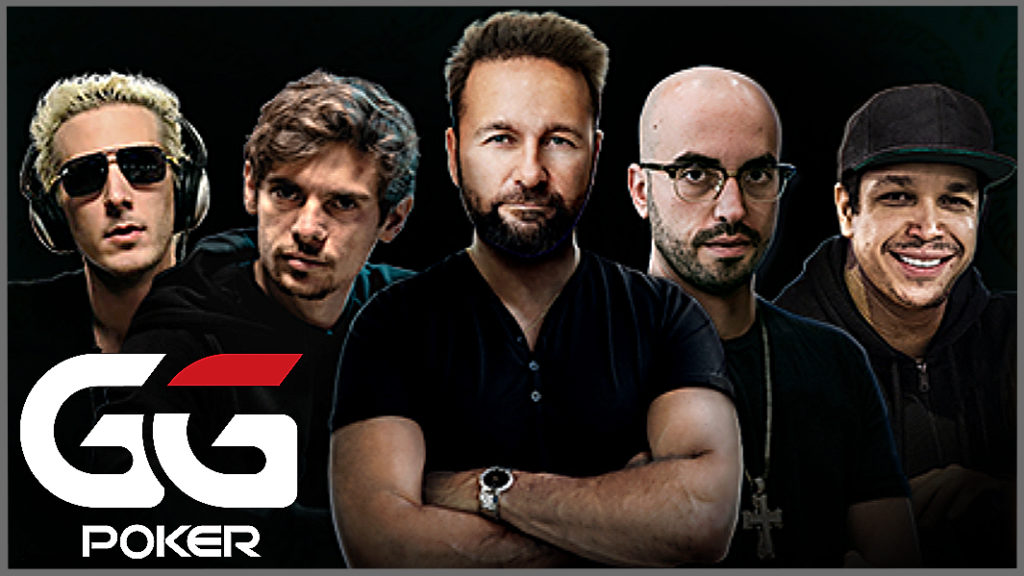
For those interested in joining GG network, you can sign-up directly here for the best deals (including a $600 deposit bonus) or contact Pokernerve support (admin@pokernerve.com) for assistance as we work closely with GGN and have helped create accounts for people all over the world.
Cyber Security Risks that are the Responsibility of the Player
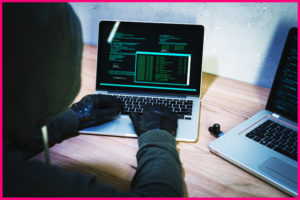
As a player, your security while playing poker online may be compromised if the computer you are playing on is unsafe or gets hacked. It is, therefore, your duty to ensure the computer you play on is secured. Computer software can do harm in various ways. It can register your hole cards, your password, and your activity on the virtual felt. Compromised software can also seize your activities while online and perform remote-controlled commands using a remote controller. In short, there are many ways a compromised device can potentially cost a player money.
Thankfully, there are plenty of steps a player can take to reduce the risk and protect themselves and their poker accounts from internet theft.
Ways a Poker Player can Stay Safe while Playing Poker Online
Software Updates
Don’t always be comfortable with the free antivirus program that you installed and one that came already bundled with the operating system. Instead, go for a stronger anti-malware security suite that provides protection against keyloggers, Trojans viruses, worms, spam, and identity theft.
A good security suite will help prevent an intruder from accessing your machine. Remember, paid services are always updated more regularly, so you are usually protected from the latest risks. Also, they are updated automatically so you don’t have to remember to install the latest malware definitions.
Use Strong Passwords
It won’t take a hacker such a hard time breaking into an account whose password is “password” or “poker”! It goes without saying that a strong password is necessary not just for your online poker account but for all your online accounts. A strong password has at least seven to eight characters, with a combination of symbols, numbers, and letters, and combines both lower and upper cases. If you would rather use just words instead of this combination, then at least remember that it is easier to break one-word passwords than multiple-word passwords. So, instead of “bluesky,” use something like “blueskyforever.” Better yet, you can add a symbol or number to it to make it even stronger.
If you find it difficult to set strong passwords, you can get a password manager to help you set and store random passwords. Don’t reuse passwords and ensure that each poker site that you log onto has a unique randomly generated password. Also, ensure you change your passwords periodically.
Having a distinct email address just for poker is also quite helpful. This will ensure that someone doesn’t get to your poker account even if they hack your other email accounts.
Use Two-factor Authentication
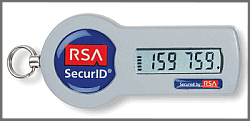
As the name suggests, two-factor authentication or two-step authentication means in addition to the typical username and password, you will also be required to enter a code that is usually sent as a text message to your phone, displayed in an app, or on a physical token. This serves as an additional layer of protection for your online accounts. Before you gain full access to the account, you’ll be advised to enter the short, randomly-generated confirmation code.
Some poker sites send a small widget bearing a screen, like the RSA SecureID Token used by Pokerstars. A great way to add an extra layer of security to your account.
Do not Access Poker Accounts while on Public Wi-Fi Networks
We all love public Wi-Fi networks found at hotel and airport lobbies or at the local coffee shop because they are free and are readily available. But, these networks are notoriously unsafe and shouldn’t be used for activities such as online poker, shopping, or banking.
While some Wi-Fi hotspots such as a wireless network called “McDonald's” or "Hilton" may appear to be legitimate, nearby criminals can create crooked networks that contain the name of the hotel, store, or airport and use them to direct data to their devices. Before logging in, always double-check to ensure that the network name is legit and matches the name of the establishment. Otherwise, avoid entering private information such as your poker account password while on public Wi-Fi.
If you plan to be traveling a lot, then it’s better to buy a pay-as-you-go Wi-Fi device or dongle so that you can have your own network. You can also tether your laptop to your smartphone and let that act as a Wi-Fi network especially if your data contract is limitless. Another option is to use the public Wi-Fi but encrypt your data using a VPN as explained in our next point
Use a VPN
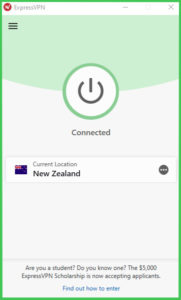
Using a VPN is an excellent way to keep data secure and private. If you have to access your poker site while on public Wi-Fi, or want to remain anonymous to your local provider, it’s prudent to use a VPN to encrypt your data so that no prying eyes can access it.
A VPN is an important tool to have even when you are using your own wired or Wi-Fi network. A VPN makes it difficult for people to unravel your true IP address and location.
One thing many players have started doing is using a VPN to play online poker from places like Australia and the US on GGNetwork. This creates a very reliable, secure connection and allows poker players to get involved in the daily cash games and tournaments. So be sure to confirm the regulations from your city or province and know the risks. Be sure to check the site's terms and conditions. And for those venturing online, watch out for cheap or free VPN solutions as they rarely offer full-proof protection and may expose your information. You can still get a really reliable yet affordable VPN like ExpressVPN. ExpressVPN also works really well with a site like GGN for those who want to play poker anonymously.
Be on the Lookout for Suspicious Looking Emails or IMS
To protect your online poker account or any other online account, it’s advisable to resist clicking on links attached to unfamiliar emails, no matter how genuine or enticing they look. Information or promotions can usually be gotten by logging onto the website. If you get any kind of communication from a website that you are unsure of, it’s only wise to end the communication. This includes information via IM, phone call, or email. You can always contact the company's support for confirmation they reached out to you. Remember, no company or site should ever ask for PINs or passwords, and you should never avail them even to family and friends.
Quit Playing as the Admin
Another possible step to reduce security risks is to play using a computer for which you don’t hold administration rights. This way, it will be difficult for someone to discreetly install some program on your device while you are in a poker play session.
Setting up another account outside of the PC’s admin is a fairly straightforward procedure, and you can name it “poker” and be logging into it before you commence playing.
It’s good to note that some companies are creating “virtual machine” solutions such as PokerShield.com, meaning it will be possible to boot your operating system directly from a USB or CD. The system will then separate your device operating system into two programs, so you can use one to play your online poker and use the other for the rest of the computer activities.
Another option, that in particular high stakes players use, is to play on a dedicated ‘poker computer’. This machine should not be used for anything else but playing poker. Only install tools you might need like ICM calculators or tracking software. To install a poker client, consider transferring the files via a USB stick, then install the program. This way, you will be ensuring that nothing undesirable gets onto your computer. If you wish to use Skype or visit any other websites, then you should do it on a different machine to help prevent your PC from being compromised.
Be Careful with Skype/Chat Programs
Be advised not to add strangers to your chat programs. Programs like Skype can leave you vulnerable to attacks. An IP address can easily be discovered, you could unwittingly receive a virus or trojan, or create an access point for a hacker. To avoid this, only add immediate friends and associates to your chat programs.
Observe Personal Security
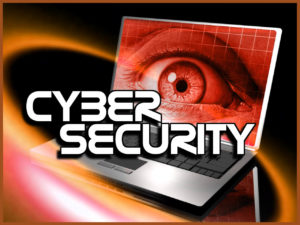
As you continue to play online poker, you are bound to build many friendships via online contact and forums. When you are meeting people, especially at your home, no matter how much you may think you know about them, it is still wise to take some precautions. For starters, ensure your guests do not access your poker playing equipment and never let them have access to your accounts.
Be particularly careful if you have recently had a large win or gained some media attention. Note that there have been several instances where people have been put in danger as a result of their poker success. Perhaps most notably, WSOP winner Jonathan Duhamel. Robbers entered his Montreal home, tied him up, beat him, then steal his WSOP bracelet, a Rolex watch, and over $100,000 in cash. If you feel you are in any danger, then you should consult the police or a security firm for advice.
To conclude in short, while it’s true that some of the threats that online poker players face emanate from poker site servers themselves, it’s also true that most risks originate from the players' end. Risks such as someone breaking into a device being used and viewing your cards as you play, or a hacker accessing your poker account and stealing money.
So be mindful when you play online and consider taking steps to protect yourself and your money. The most important lesson that we all need to learn is to take both online and offline security very seriously. There are unfortunately people who are out there with the necessary knowledge and intent to take advantage of poor security. The more difficult you make it for people to access your information, the more secure you will be, and not just in online poker, but in life generally.
It would be extremely traumatizing to discover that your account has been hacked and that your hard-earned cash is gone. So, it’s up to you to take every necessary step to stay safe. Hopefully, the steps outlined above will bring more awareness to online security and help in the fight against online attacks and cyber-criminals. So players can relax and focus on the important things, like winning!

